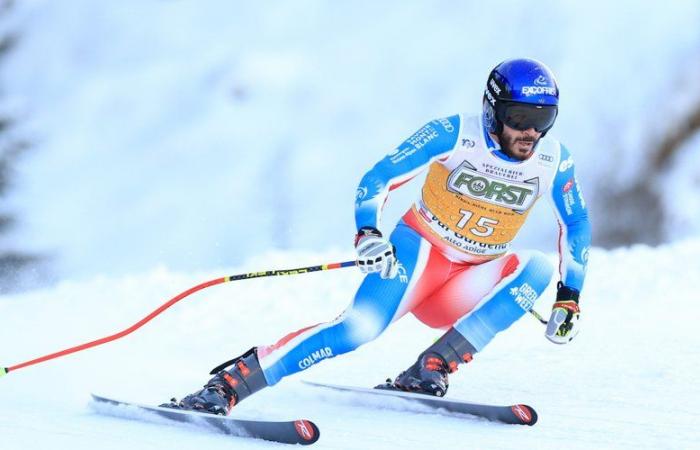
The director of the men's races of the International Ski Federation (FIS) Markus Waldner spoke out about the criticisms made by other skiers about the preparation of this slope.
The boss of the men's alpine skiing World Cup brushed aside criticism of the preparation for the Bormio track (Italy) where the French Cyprien Sarrazin fell heavily on Friday. “There are now criticisms every week: in Gurgl (Austria), the track was too hard, in Levi (Finland) too smooth… We are a sport that is practiced outdoors”said Markus Waldner at the end of the team captains' meeting on Friday evening in Bormio.
“The organizers do their best to prepare the slopes as well as possible and (the Stelvio) was prepared as it is every year”assured the head of the International Ski Federation (FIS). “The problem is that on Christmas Day there was a lot of wind and we know what the wind does: it dried the snow from the bottom to the top, which explains why the snow was not uniform on the track which is three kilometers long and which it is impossible to make uniform”he assured.
Also read:
Violent fall during Cyprien Sarrazin's training: the skier suffers from an intracranial hematoma, he is hospitalized “in neurological intensive care”
Sarrazin, world No.2 in downhill last winter, suffers from intracranial hematoma which had to be drained during the night from Friday to Saturday. The operation was “well gone”announced the French Ski Federation on Saturday morning. During this second training, two other skiers were seriously injured and several participants virulently criticized the preparation of the track where the men's downhill of the 2026 Olympic Games will take place in thirteen months. “They don't know how to do anything other than prepare dangerous trackshit the Frenchman on Eurosport Nils Allègre. They don't deserve to have the Olympics here.”.
Pour Markus Waldnerat the head of the men's circuit since 2014, the main problem in high-level skiing is the evolution of the material which allows skiers to go ever faster. “It's too aggressive, we've reached the limits, there's no more margin. It's difficult to find the right skis that work on the hard sectors and then on the less hard sectors. That's the problem, If you go to the limit, what happened on Friday happens.”he estimated. “We need everyone’s cooperation. The equipment manufacturers listen to us, not the biggest national federations”added the FIS official.





